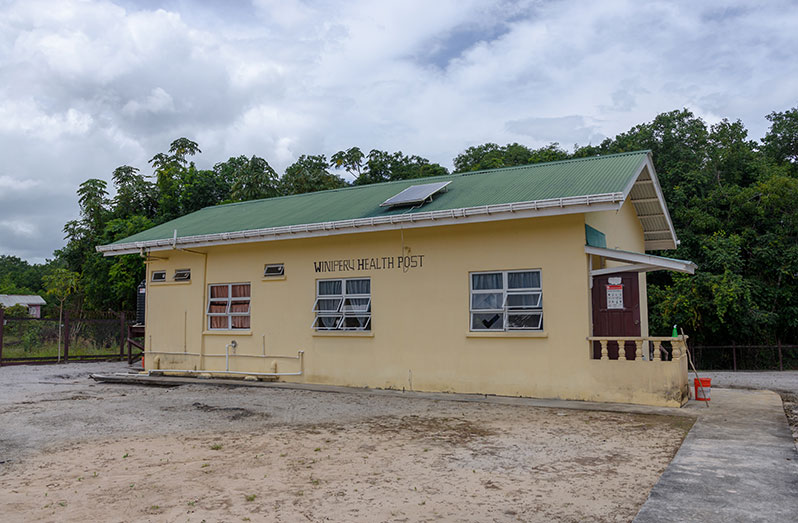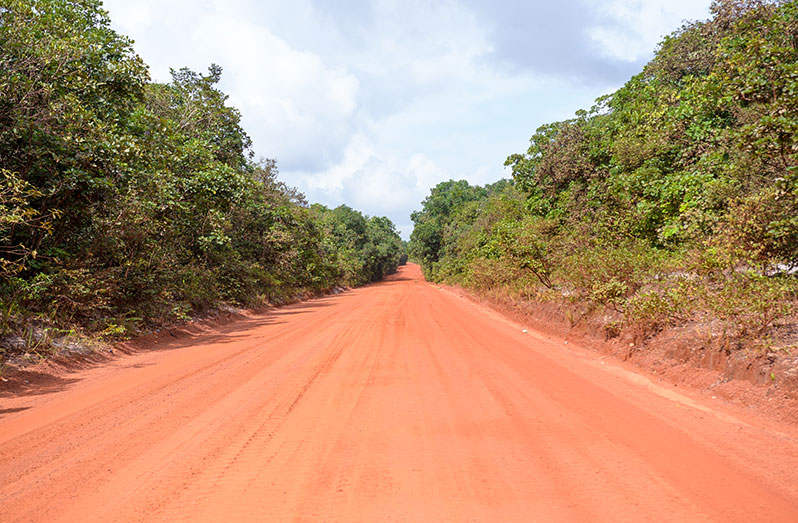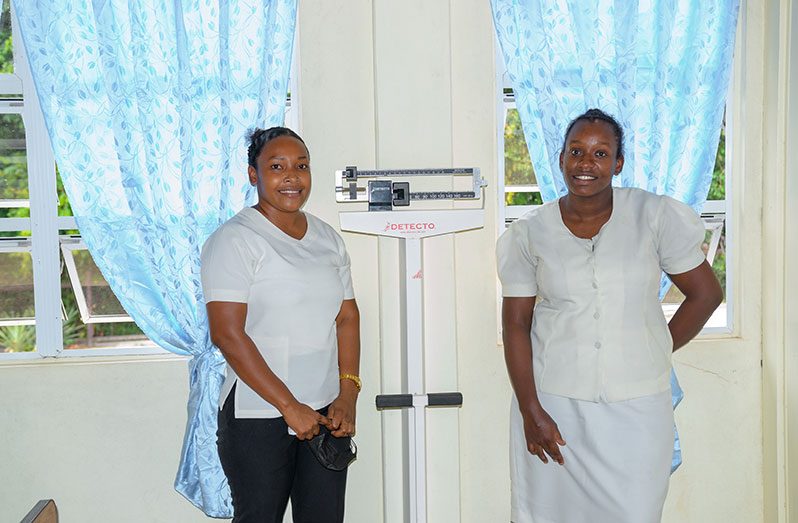– making a difference in the lives of residents
THE health post in Winiperu is seldom closed. The community, with about 130 persons, is being served by two Community Health Workers (CHWs) who go above and beyond the call of duty to help those who are in need.
According to the World Health Organisation (WHO), CHWs are health care providers who live in the community, they serve and receive lower levels of formal education and training than professional health care workers such as nurses and doctors.
This human resource group, according to WHO, has enormous potential to extend health care services to vulnerable populations, such as communities living in remote areas and historically marginalised people, to meet unmet health needs in a culturally appropriate manner, improve access to services, address inequities in health status and improve health system performance and efficiency.

“We open every day, even on weekends. We’d just come out to help,” Alana Glasgow Beaton, one of the CHWs working at the Winiperu health post for the past seven years, told Pepperpot Magazine during a visit to the facility.
Along with the other CHW, Natasha Lowenfield, Alana grew up in the village and is happy to serve the residents in this capacity.
“The work is not fatiguing, because on a daily basis we see between five and 10 persons,” the mother of two shared.
Of course, because of its remote location, the health post has certain limitations. In the event of an emergency, residents would have to be referred to another facility, such as the Bartica or Linden hospital.

Emergency Cases
“If there is a serious emergency and we don’t have the equipment to assist the person, we will go to the manager of the company (the logging company, Vaiterna Private Holdings) to assist us with transportation to get to the nearest hospital,” Alana explained.
By road, it takes about an hour to get to the Bartica hospital and roughly 45 minutes by boat. While Alana cannot recall anyone dying in the village due to an emergency, she does remember the time that a resident’s life could’ve been saved if he had made it earlier to the hospital. That resident, she said, died while he was receiving treatment at the Bartica Hospital.
“When certain things happen, it’s challenging when it comes to transportation. We don’t have a midwife here, so in severe cases, we have to refer to Bartica hospital. Also, certain medications we don’t store here,” Alana shared.
More Fun
Alana, like many others, fondly recalls how life was in years past when Winiperu had many more residents. “Life was much more fun back then as we had more than 300 people living here. We still have the playfield, the airstrip, and the creek,” she offered.
But the people of Winiperu, according to Alana, face a lot of challenges when it comes to the lack of water and electricity.
“They have to buy a generator and then pay to fuel it. We would depend on the rain for water, and when there’s no rain, we would have to go to the creek, which is quite a distance for some people.”
On the occasions that water has to be obtained from the creek, Alana would help her husband to fetch. “I would fetch one bucket and my husband would fetch two. He’d have to make about three trips to get enough water for the family.”
Alana said residents would also have to contend with high prices for groceries and other needed items. “The price here is expensive, but we’re accustomed to it. If we need it, we have to buy it.”




.jpg)










